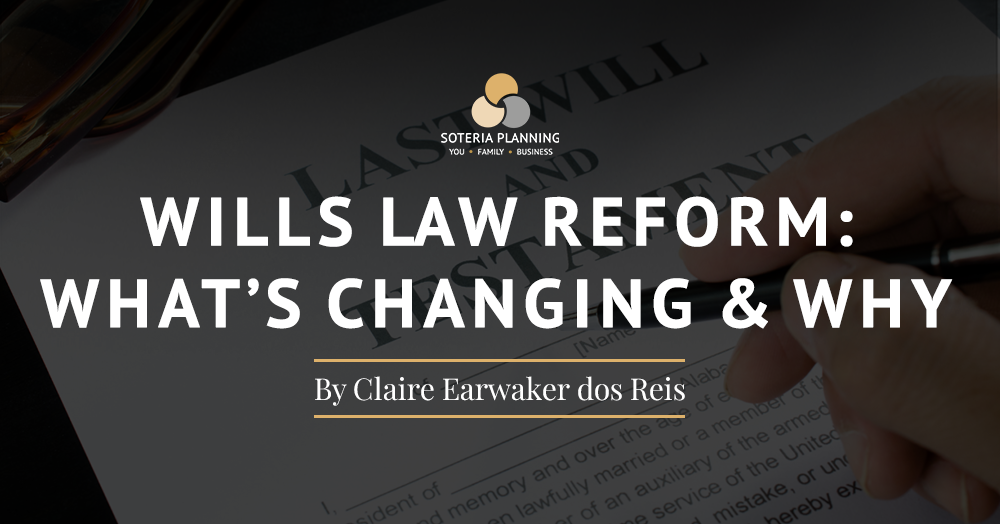Evolving Trends in Estate Planning: Tradition and Modern Estate Planning Ensuring your legacy throug...
Evolving Trends in Estate Planning: Tradition and Modern Estate Planning
Ensuring your legacy through careful estate planning has always been a part of responsible financial management but you’d be surprised at just how many people haven’t event got a Will. In England and Wales, where the estate planning industry has spent the last 30+ years evolving, changes within society have shifted the needs of those putting even basic estate planning in place.
Here are some interesting and in some cases saddening statistics:
In 2022, a total of 577,160 deaths were registered in England and Wales. While this represented a 1.6% decrease from the previous year, it marked a notable 6.2% increase compared to the five-year average spanning 2016 to 2019 and 2021. What this does go to show is that, even with an increasing population, and one where people are living longer, people ought to be planning for their succession.
In a recent study conducted by IRN Legal Reports which featured in Today’s Wills and Probate, it was revealed that only 35% of UK adults have gone to the efforts of writing a Will. This statistic prompts us to question the reasons behind such a low number, particularly when statistics since 2011 have told us that it was a 50/50 split between those who had taken the important step and those who hadn’t. For the team here at Soteria Planning, it’s our view that it comes down to a matter of awareness. Do individuals find the process daunting? In an age or society with ever-increasing complexities (tax/family structures), ensuring your testamentary wishes (in your Will) are documented seems like a crucial step in safeguarding your assets and sparing your loved ones undue distress but yet so many haven’t done it…
Our approach is one of simplicity and transparency. We’ve taken the approach of offering a free consultation to address all of the questions that you might have before placing you in a position to decide what you might need.
A particularly poignant and concerning threat when it comes to estate planning is dementia. With an estimated 944,000 people living with dementia in 2021, this figure is predicted to escalate to a staggering 1.6 million by 2050, certainly with no foreseeable end to this horrible disease. This trend calls attention to the urgency of comprehensive estate planning. Navigating English and Welsh Law (the law by which we write Wills and create Lasting Powers of Attorney) to ensure a clear and unambiguous distribution of assets becomes vital. When it comes to dementia, there are a number of threats, particularly, care (and the provision, costs and decision making around this), as well as having the required capacity to engage in the estate planning document production process so taking early steps is vital. This is something we always tell our clients.
With statistics like those mentioned above, one heartening development is the surge in registered Lasting Powers of Attorney (LPA). For those reading that aren’t sure what an LPA is, it’s a critical legal instrument empowering individuals to nominate trusted representatives (called Attorneys) who can make decisions on their behalf if they become incapacitated. An example of when they’re used is if someone were to lose capacity due to a stroke or dementia. This document, if in place means that the Donor (the person whose LPA it is) has someone who can legally support with decision making.
Yet, amidst modernisations in the process and online forms etc., the legal landscape still worryingly has legal instruments and instructions dating back nearly 200 years to the Wills Act 1837. In England and Wales, the signing and witnessing of Wills adheres to this ancient piece of legislation, where as some other countries have more modern processes in place.
One factor that can’t be ignored in the estate planning equation is inheritance tax. The United Kingdom witnessed approximately seven billion British pounds in inheritance tax receipts during the 2022/23 financial year, reflecting the enduring need for astute financial planning to mitigate potential tax liabilities. This is expected to rise year on year with increasing estate values caused by increasing house prices, particularly across the South and South West where the market seems pretty buoyant. As regulations shift and financial thresholds evolve, staying well-informed about the current tax landscape is important but it can also be a full time job, hence the need for proper estate planning advice.
Wright Hassall, a law firm that deals in litigation and contentious probate aptly states on their website that, “It is well known that any litigation is expensive and contesting a will is no different. If anything, inheritance claims can be more expensive than other forms of litigation due to the nature of the claim and the amount of work and investigation involved.” This emphasises the need for meticulous estate planning, ensuring that your wishes are documented in a way that minimises the potential for costly disputes. At Soteria Planning, having the right planning in place, at the right time, before anything goes wrong, from people who understand the intricacies of the legislation and can take time to understand your circumstances is vital.
To round things up, the estate planning industry in England and Wales stands at an intriguing crossroads, where historical practices meet contemporary sensibilities. Estate planning is not merely a financial exercise; it’s a testament to your life’s work and the love you hold for your family and beneficiaries. We’ve said before, if you have one thing to leave and love one person or charity, you should write a Will. If people rely on you financially, this becomes even more important. If you have a sizeable estate, you should also be making the right financial and legal decisions. Staying informed and engaging with professionals who understand these evolving trends is the key to navigating the estate planning barriers and ensuring that your legacy remains intact for generations to come.
Should you have any estate planning questions, feel free to reach out to our friendly team on 01344 531521 or request a meeting with one of our Advisors here.



Share this with
Email
Facebook
Messenger
Twitter
Pinterest
LinkedIn
Copy this link